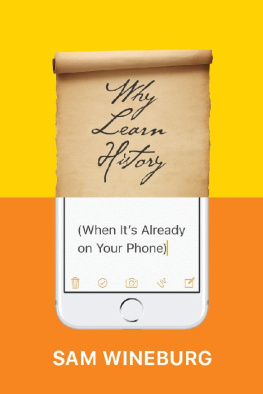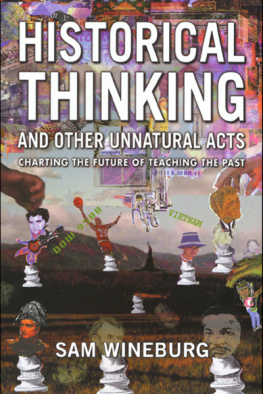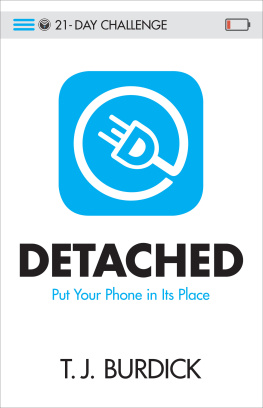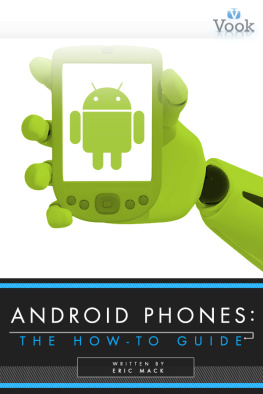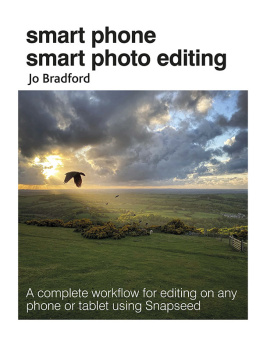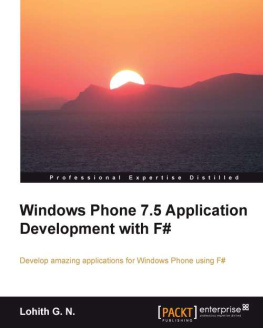WHY LEARN HISTORY (WHEN ITS ALREADY ON YOUR PHONE)
Why Learn History (When Its Already on Your Phone)
Sam Wineburg
THE UNIVERSITY OF CHICAGO PRESS
Chicago and London
The University of Chicago Press, Chicago 60637
The University of Chicago Press, Ltd., London
2018 by The University of Chicago
All rights reserved. No part of this book may be used or reproduced in any manner whatsoever without written permission, except in the case of brief quotations in critical articles and reviews. For more information, contact the University of Chicago Press, 1427 E. 60th St., Chicago, IL 60637.
Published 2018
Printed in the United States of America
27 26 25 24 23 22 21 20 19 18 1 2 3 4 5
ISBN-13: 978-0-226-35718-8 (cloth)
ISBN-13: 978-0-226-35721-8 (paper)
ISBN-13: 978-0-226-35735-5 (e-book)
DOI: https://doi.org/10.7208/chicago/9780226357355.001.0001
Library of Congress Cataloging-in-Publication Data
Names: Wineburg, Samuel S., author.
Title: Why learn history (when its already on your phone) / Sam Wineburg.
Description: Chicago : The University of Chicago Press, 2018. | Includes bibliographical references and index.
Identifiers: LCCN 2018013233 | ISBN 9780226357188 (cloth : alk. paper) | ISBN 9780226357218 (pbk : alk. paper) | ISBN 9780226357355 (e-book)
Subjects: LCSH: United StatesHistoryStudy and teachingTechnological innovationsUnited States. | United StatesHistoryStudy and teachingUnited States. | EducationEffect of technological innovations onUnited States. | Internet and educationUnited States. | Internet in educationUnited States. | Educational tests and measurementsUnited States.
Classification: LCC E175.8 .W57 2018 | DDC 973.007dc23
LC record available at https://lccn.loc.gov/2018013233

This paper meets the requirements of ANSI/NISO Z39.48-1992 (Permanence of Paper).
For Lee,
without whom none of this would have happened
Contents
In October 2010 the Washington Post broke a story about a fourth-grade textbook called Our Virginia, Past and Present . The book describes the role that African Americans played in the Civil War. If you are a movie aficionado and have seen Glory and know the story of the Fifty-Fourth Massachusetts Volunteer Infantry and the 180,000 African Americans who served the Unionconstituting over 10 percent of the fighting forceyou might expect that to be the focus. Wrong. Our Virginia, Past and Present presents Virginias fourth-graders with some questionable historical information: Thousands of Southern blacks fought in the Confederate ranks, including two battalions under the command of Stonewall Jackson. For this statement to be true, it would have to have occurred at the height of the Civil War, since Thomas Stonewall Jackson died by friendly fire from the Eighteenth North Carolina Infantry Regiment on May 10, 1863.
It has long been known that the Confederate army forced slaves into service as cooks and laborers who provided backup for weapons-bearing troops. We know of dozens of cases like this. We even have some scattered photographs of slaves suited up in uniform sitting next to their masters. But thats not what were talking about. We are talking about the formal mustering of thousands of black soldiers under Jackson alone and, by extension, thousands more under other generals, who trained them in weaponry, organized them into battalions, and taught them to fight for the South. We are talking about enslaved black Americans voluntarily risking their lives so that they could remain enslaved.
Common sense balks at these claims. The only document we have from the Confederacy about drafting African American soldiers comes in the waning days of the war, a last-ditch effort less than three weeks before Lees surrender at Appomattox. If thousands of blacks were already bearing arms for the Confederacy, the South would not have had to enact General Orders #14 on March 23, 1865, to try to draft black soldiers to the Souths cause. Even this late in the war, the proposal was so controversial that its authors felt compelled to issue a disclaimer: Nothing in this act shall be construed to authorize a change in the relation which the said slaves shall bear toward their owners.
Where would Our Virginia, Past and Present find support for a claim rejected by every reputable Civil War historian we could think of?
Our first reaction might be shock at Ms. Masoffs carelessness. And its unfortunate that her assertions ended up in a book for schoolchildren. However, I want to suggest something different. I want to consider the possibility that Joy Masoff is not so different from you or me.
We live in an age when going to the library means turning on our laptops and making sure we have a wireless connection. Being on the Web and searching for information is radically different from how anyone learned to do research a generation ago. In those days of yore, libraries and archives represented quiet stability. I was eleven when I engaged in my first act of library research (a report on the Bermuda Triangle assigned by my incomparable sixth-grade teacher, Diane Abbey). I took a city bus to an imposing building with Corinthian columns in my hometown of Utica, New York. In hushed tones, the librarian revealed to me the card catalog, bestowed upon me a stubby, eraser-less pencil, and taught me to write down cryptic strings of numbers that sent me deep into the stacks. Obviously, it was never the case that just because something was printed meant that it was true. Mrs. Abbey taught us that in 1969. At the same time, we often ceded authority to established figures. We relied on them to make sure that what we read was accurate, that it had gone through rounds of criticism before it met our eyes. Only a small number of us were published authors. Most of us consumed information others had created.
The reality we inhabit now is very different. The Internet has obliterated authority. You need no ones permission to create a website. You need no hall pass to put up a YouTube video. You need no ones stamp of approval to post a picture on Instagram. Tweet to your hearts contentjust look at the president. Go aheadbe an author! What determines whether you go viral is not the blessing from some academic egghead, but from the digital mob.
Between January 2015 and June 2016, my research team tested students in twelve states and analyzed 7,804 responses. Our exercises measured online civic reasoning , students ability to judge the information that streams across their smartphones, tablets, and computers. At each levelmiddle school, high school, and collegewe encountered a stunning and dismaying consistency. Young peoples ability to reason about information found on the Internet can be summed up in a single word: Bleak .
At the middle school level, 82 percent of students couldnt distinguish between an ad and a news story. Almost 70 percent couldnt explain why they might question an article written by a bank executive about millennials need for fiscal advice. Despite their adeptness with social media, three-quarters of high school students missed the significance of the blue checkmark showing that an account was verified by Facebook. Over 30 percent thought a fake news post was more trustworthy than a verified one. Viewing a screenshot of nuclear flowers supposedly taken near the site of the Fukushima Daiichi disaster, four in ten considered it to be strong evidence of environmental damage, even though there was nothing in the picture to indicate that it had been taken near the siteor even in Japan.
At the college level, students struggled mightily when confronted with a site that hid its backers. We sent undergrads to Most students never moved beyond the site itself.
 This paper meets the requirements of ANSI/NISO Z39.48-1992 (Permanence of Paper).
This paper meets the requirements of ANSI/NISO Z39.48-1992 (Permanence of Paper).
